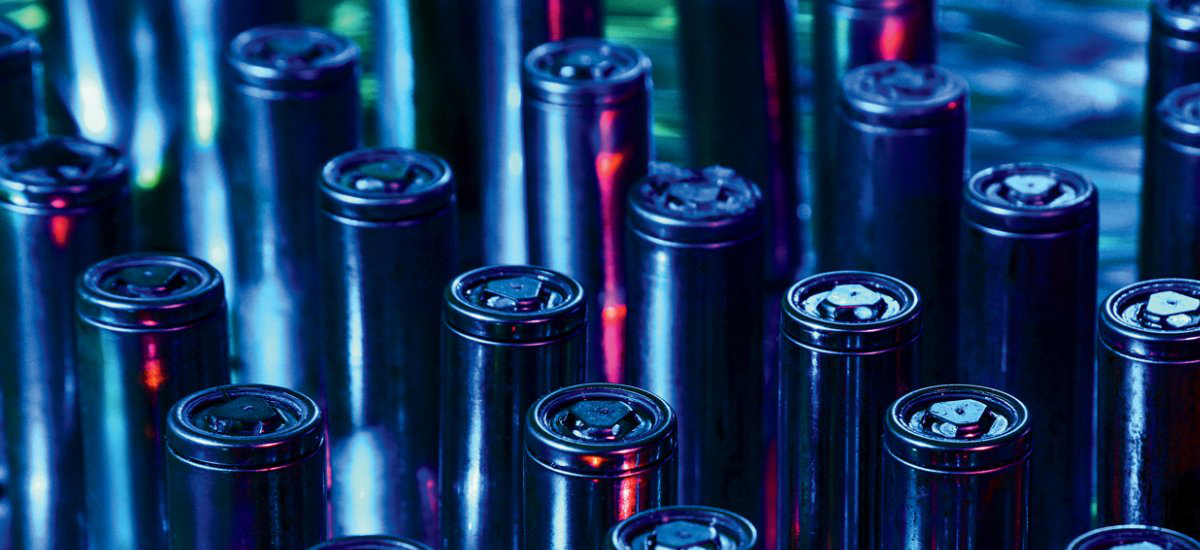
 Your Credit Estimate
Your Credit Estimate
 Your Credit
Your Credit
Your zip code helps us provide you with the most accurate vehicle pricing and vehicle availability.
We estimate your credit score to give you an idea of your monthly payments. To get an accurate payment amount, complete our credit application by clicking the Start Credit Application button below.
start credit application
Last week, we talked about some of the new concepts and innovative technologies at the 2019 Geneva International Motor Show, and the votes are in. Automakers are focusing on alternative fuel technologies and even lifestyles, a new pattern that will evidently change the auto industry as we know it. It’s clearly a serious trend when even muscle car automaker Dodge is going electric, changing its game plan in a huge way – an electric or hybrid Dodge Charger. Now that’ll be something. With the auto industry finally at the tipping point on hybrid and electric vehicles, one wonders if the technology is also finally there.
Fiat Chrysler Automobiles has been dipping into alternative fuel the most with its Chrysler Pacifica Hybrid minivan, a plug-in hybrid electric vehicle (PHEV) that can run on electricity alone or in tandem with the electric motor and the gasoline engine. The newest addition is Jeep with plug-in hybrid variants of their entire lineup. A plug-in hybrid variant of the Jeep Renegade and Jeep Compass, both powered by a 1.3-liter turbocharged gasoline engine and an electric motor showed up at the 2019 Geneva Motor Show.
Possibly the most interesting was the Mitsubishi Dendo Drive House (DDH). It’s a home equipped with solar panels to collect energy that is then converted into electricity and stored in a home battery, where it is then shared with the rest of the house. A two-part system, excess energy can also be transmitted into a PHEV for storage, be it the Mitsubishi Outlander PHEV or the Chrysler Pacifica Hybrid, with installations available by 2020.
Then there was Kia Motors, who had more of a concept called “Imagine by Kia”. The presentation was more focused on the future of alternative fuel and electric vehicles. That begs the question, “What about it?” We know automakers have been shy to get in on the ground floor with electric vehicles and plug-in hybrids because of how expensive they are to make and the handicap on driving range. Today, most electric vehicles (EVs) have yet to be able to travel on a single battery charge as far as a traditional vehicle can on a full tank of gasoline. It’s a problem battery makers have yet to solve.
Now comes the research. Traditional electronics makers, car companies, and tech giants (including Panasonic, Samsung, LG Chem, Toshiba, Google, BMW, and Dyson) are working on ways to make lithium-ion batteries more powerful, able to store more energy and store more of it faster, while still being safe. Several companies are currently tinkering with the possibilities, and the popular choice is to make batteries denser.
"It's the right technology; we just need to make it do a little bit more…To get a battery to be denser, it introduces new challenges." - Rick Fioravanti, an energy-industry consultant with Quanta Technology
A large problem of lithium-ion batteries today is heat. When charging a vehicle, the ions' voyage between the anode and a cathode of a lithium-ion battery creates resistance, mostly in the form of heat, and the faster the charge, the more resistance. This leads to a battery that heats up too quickly that can catch fire or explode. While some companies are focusing on increasing energy storage, there are other companies working on safety. Christina Lampe-Onnerud, the founder and CEO of Cadenza Innovation, is addressing the heat issue by focusing on the outside of the power cell. BMW supplier Sila Nanotechnologies, one in a collection of startups is working on the various aspects of battery tech and the materials used to make them to increase energy storage by 20 percent or more.
Some other key players include Fisker in Los Angeles, Panasonic in Tokyo, Contemporary Amperex technology (CATL) in China, Dyson in England, QuantumScape in California, and Romeo Power, also in Los Angeles. All of these companies are focusing on developing batteries, trying to crack the code of making denser, more efficient batteries, while still keeping them safe and inexpensive. The cost is still a problem to tackle – the same batteries that power an iPhone are the same in a battery, but there are about 10,000 more battery cells in an electric vehicle than a smartphone. We all know how expensive iPhones are, so just think of the cost to put 10,000 into one vehicle.
As it currently stands, many automakers are stepping forward, but in the end, they’ve got a problem to face. We’ll keep an eye out for other startups and any breakthroughs with electric vehicles. Join the discussion on NowCar social media.